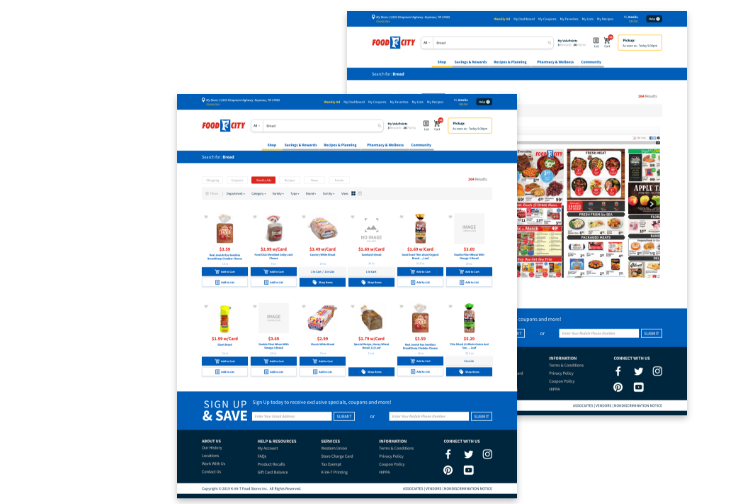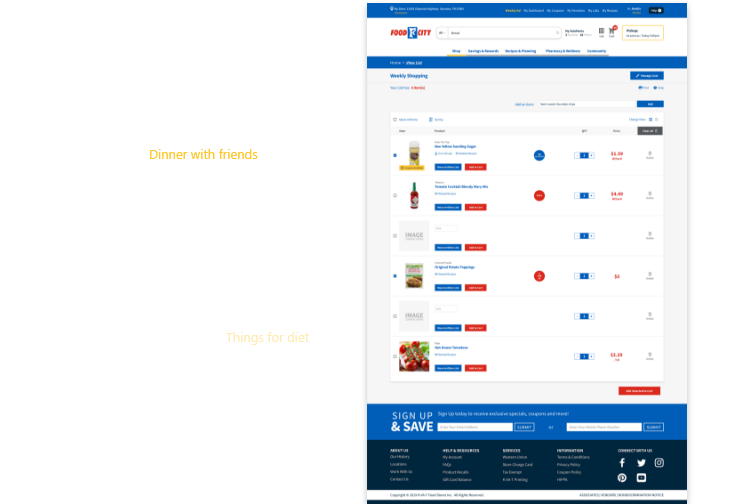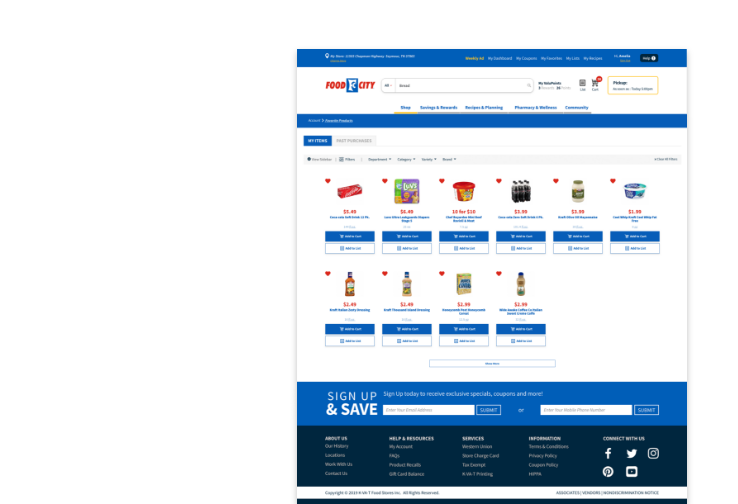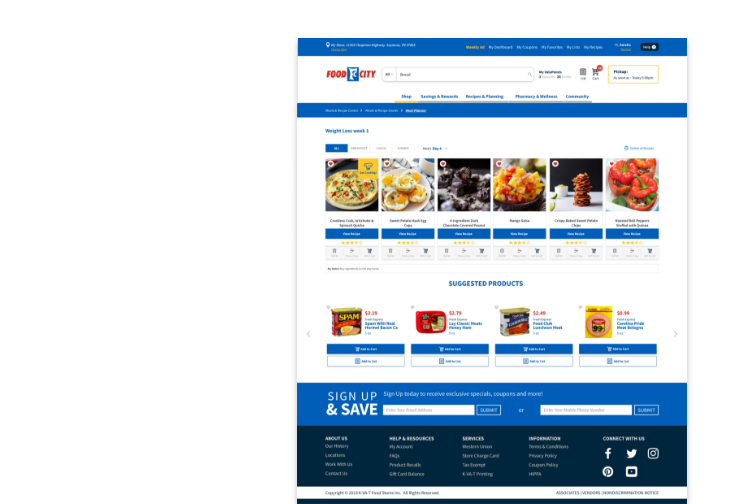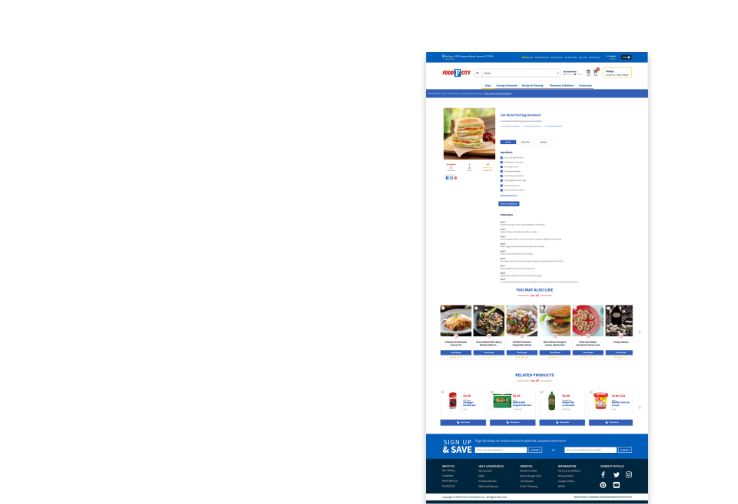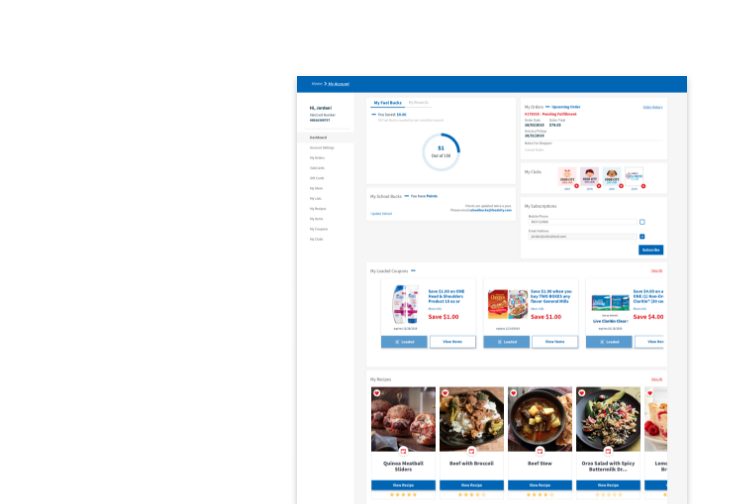
Wellness Club — Stay Heart Healthy
Abingdon, VA. -
Monday, Nov 1, 2021.
Written by: Elizabeth Hall, PhD, RDN, LDN, Food City Registered Dietitian
A heart-healthy eating pattern is one that is balanced in all of the food groups including fruits, vegetables, whole grains and high-fiber starches, low-fat dairy, lean protein, and healthy fats. Here are some tips to support your body’s hardest working muscle – your heart!
Fruits and Veggies: The nutrients in produce, especially antioxidants and potassium, support heart health and keep blood pressure in check. Shoot for at least 2 cups of fruit and 3 cups of vegetables each day to ensure you are getting all the nutrients you need to help you feel great and prevent disease.
Whole Grains & High Fiber starches: Carbohydrates serve as the body’s primary energy source. Plus, the fiber found in grains also provides special benefits to heart health. Make at least half your grains, whole grain, and choose high fiber starchy vegetables like potatoes, corn, and beans.
Low-Fat Dairy: The type of fat found in dairy products is actually saturated fat which is more likely to clog your arteries and cause issues with heart health. Choose low-fat or fat-free options to get all the benefits of dairy, like calcium and vitamin D, without the saturated fat.
Lean Protein: Similarly, to reduce saturated fat intake, choose lean meats, plant-based proteins, or fish and seafood when possible.
Healthy Fats: As previously mentioned, not all fats affect your heart the same way. Choose less solid, saturated fats and more liquid, unsaturated fats like Omega-3’s from oily fish to support heart health.
Food City wants to help you “Pick Well” as you shop to support heart health! Look for the new “Heart Healthy” shelf-tag icon in store or when you shop online to find foods that are low in total and saturated fat and have limited cholesterol and sodium. These foods must also contain at least 10% or more of the daily value for vitamins A, or C, calcium, iron, potassium or protein. Plus, look for the “Low Sodium” icon for items that contain no more than 140 mg sodium per serving with limited amounts of fat, saturated fat, cholesterol, and sodium. Shopping for heart health just got easier!

